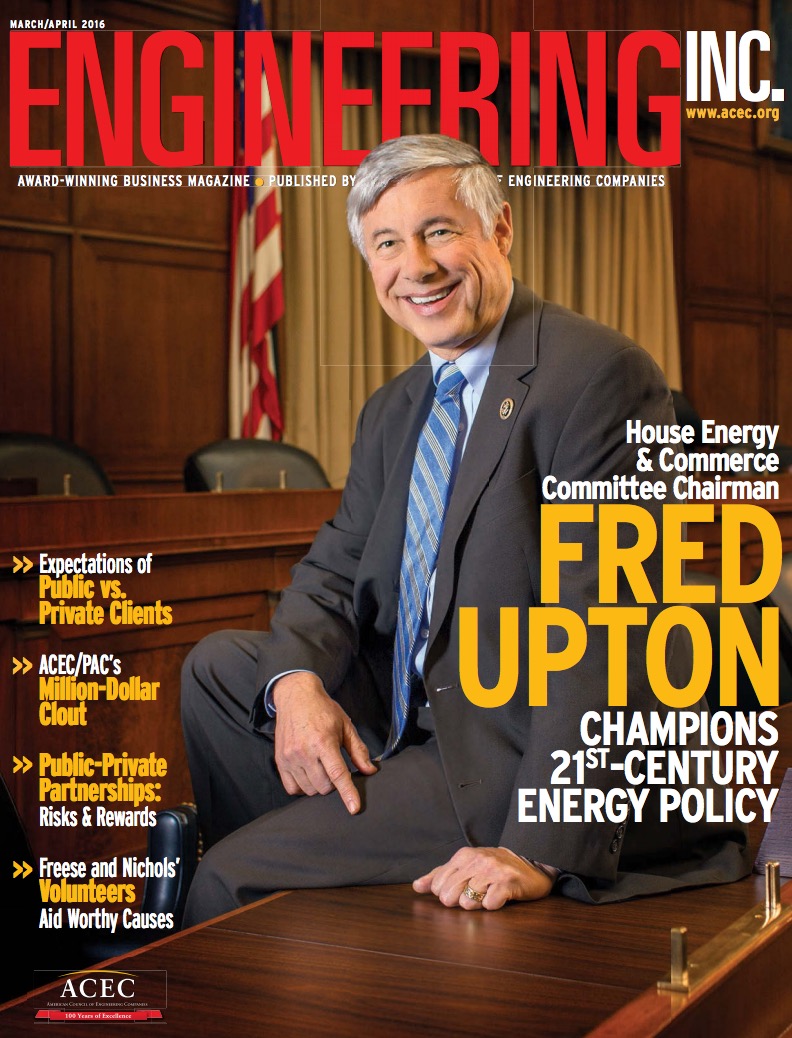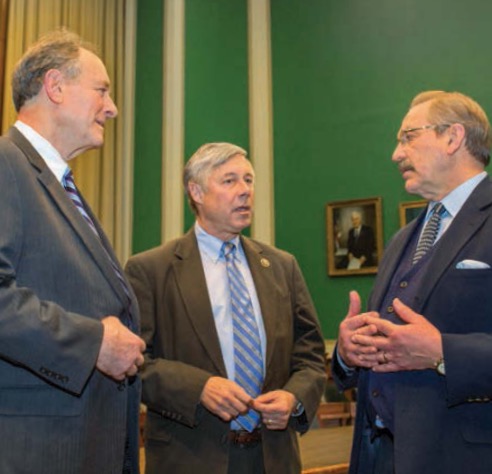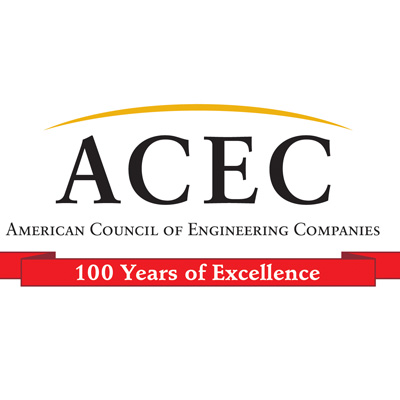AMERICAN COUNCIL OF ENGINEERING COMPANIES (ACEC)
The Chairman of the House Energy & Commerce Committee discusses his approach to improving U.S. energy security and affordability
 In 2010, Congressman Fred Upton (R-Mich.) assumed leadership of the House Committee on Energy and Commerce—which has one of the broadest jurisdictions of any congressional committee, with principal responsibility over legislation relating to energy, the environment, health care, consumer safety, telecommunications, commerce, manufacturing and trade.
In 2010, Congressman Fred Upton (R-Mich.) assumed leadership of the House Committee on Energy and Commerce—which has one of the broadest jurisdictions of any congressional committee, with principal responsibility over legislation relating to energy, the environment, health care, consumer safety, telecommunications, commerce, manufacturing and trade.
In this exclusive interview with Engineering Inc., Chairman Upton offers his perspective on a variety of critical energy issues, including prospects of a comprehensive energy bill in 2016 and his overall vision for the future U.S. energy market.
ACEC: Mr. Chairman, considerable progress has been made in advancing energy legislation during this Congress. Do you think Congress will send a comprehensive energy bill to the White House in 2016?
CHAIRMAN UPTON: In early December, the House passed H.R. 8, the North American Energy Security and Infrastructure Act, by a bipartisan vote of 249–174. The bill was the culmination of a multiyear, multi-Congress effort to modernize our outdated energy laws for the 21st century. At this time, we’re hopeful the Senate will take up, and pass, its energy bill (S. 2012) so we can work through our differences in a conference committee to enact meaningful, 21st-century policy reforms that say “yes” to energy.
ACEC: You were successful in pulling elements of your bill and adding them as an amendment to the FAST Act. How will those provisions enhance the nation’s systems of energy supply and transmission?
UPTON: We are always looking to advance our work every chance we get, and the FAST Act presented an opportunity to get a number of important provisions into law. Grid security and strengthening our energy infrastructure remain an important component of our energy portfolio moving forward. The FAST Act contained several provisions to ensure that our energy infrastructure, including the electric grid, is more resilient to 21st-century risks, such as physical attacks, cyberattacks and extreme weather.
ACEC: Congress also cleared legislation lifting the decades-long ban on oil exports—a move strongly supported by ACEC. How will that policy change impact energy markets?
UPTON: Many of our allies around the world have remained beholden to the whims of Russia, Iran and OPEC when it comes to importing oil. In lifting the ban, we’ve opened up another market for our friends around the globe to import oil from. We’ve expended significant resources to protect the free flow of energy around the world. We’re finally practicing what we’ve preached for so long and giving our allies the option of buying American exports.
ACEC: As an organization, the Council strongly supports a comprehensive approach to energy policy that makes full use of all of the nation’s energy resources. What additional policies would you advocate to expand energy markets?
 UPTON: Our goals remain focused on strengthening our energy security and affordability, while our policies are aimed at building more transparent, integrated and competitive markets with a focus on consumers. Lifting the 40-year-old ban on crude oil exports was a big win in terms of expanding our energy markets, but more can, and should, be done. We’ve tried on several occasions to expedite the approval process for liquefied natural gas export permits, but certain members of Congress and the administration have been reluctant in doing so. We will continue to advocate this important policy initiative and work toward its enactment into law. We’re also focused on modernizing our energy infrastructure and building additional energy infrastructure—including natural gas pipelines, hydropower and the electric grid—in an effort to establish a more energy-integrated North America.
UPTON: Our goals remain focused on strengthening our energy security and affordability, while our policies are aimed at building more transparent, integrated and competitive markets with a focus on consumers. Lifting the 40-year-old ban on crude oil exports was a big win in terms of expanding our energy markets, but more can, and should, be done. We’ve tried on several occasions to expedite the approval process for liquefied natural gas export permits, but certain members of Congress and the administration have been reluctant in doing so. We will continue to advocate this important policy initiative and work toward its enactment into law. We’re also focused on modernizing our energy infrastructure and building additional energy infrastructure—including natural gas pipelines, hydropower and the electric grid—in an effort to establish a more energy-integrated North America.
ACEC: While the debate over the production tax credits for renewable energy continues, how do you see the federal government’s role evolving with respect to renewables as part of a national energy strategy?
UPTON: Continued basic support of research and development funding is a good way Congress can maintain its support for a truly “all of the above” energy policy.
ACEC: What role will nuclear power play in meeting our future energy needs?
UPTON: I am a strong proponent of clean, safe nuclear power and have two nuclear plants, Cook and Palisades, in my Southwest Michigan district. While market dynamics and EPA regulations continue to place undue burdens on the electricity market, 99 operating nuclear power plants generate roughly 20 percent of the electricity we consume. Unfortunately, the nuclear industry’s cost of compliance with regulatory action has doubled over the last 10 years while facing strong cost competition from other energy sources. Clean, safe nuclear energy is, and will continue to be, a vital component of our diverse energy portfolio, and we will continue to work toward ensuring nuclear energy remains an integral part of our future.
Download full article (PDF): Congressman Fred Upton Spearheads ‘All of the Above’ Energy Policy
 About the American Council of Engineering Companies
About the American Council of Engineering Companies
www.acec.org
The American Council of Engineering Companies (ACEC) is the voice of America’s engineering industry. Council members – numbering more than 5,000 firms representing more than 500,000 employees throughout the country – are engaged in a wide range of engineering works that propel the nation’s economy, and enhance and safeguard America’s quality of life. These works allow Americans to drink clean water, enjoy a healthy life, take advantage of new technologies, and travel safely and efficiently. The Council’s mission is to contribute to America’s prosperity and welfare by advancing the business interests of member firms.
Tags: ACEC, American Council of Engineering Companies, Congressman Upton, Engineering Inc., FAST Act, Fred Upton






 RSS Feed
RSS Feed